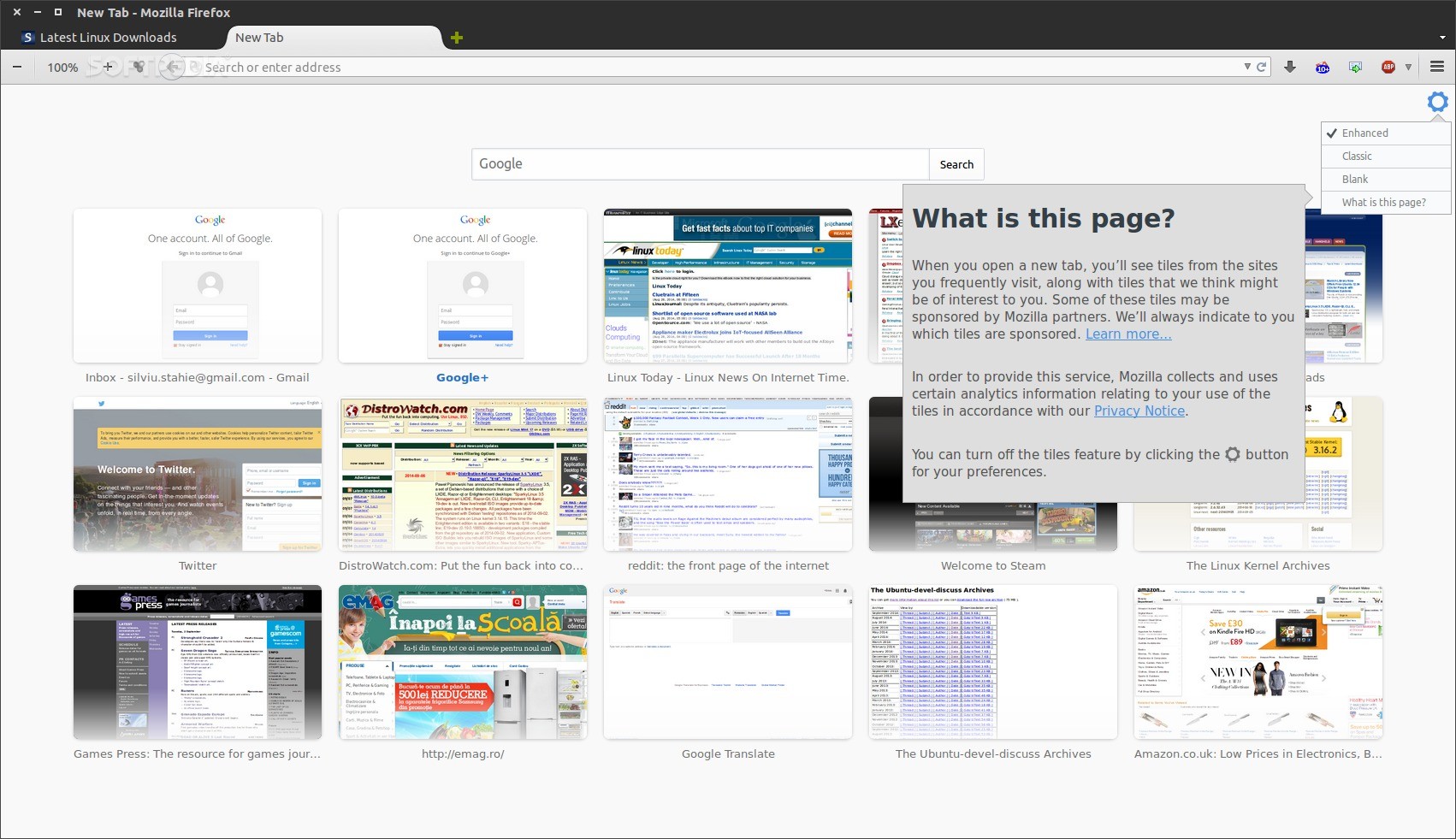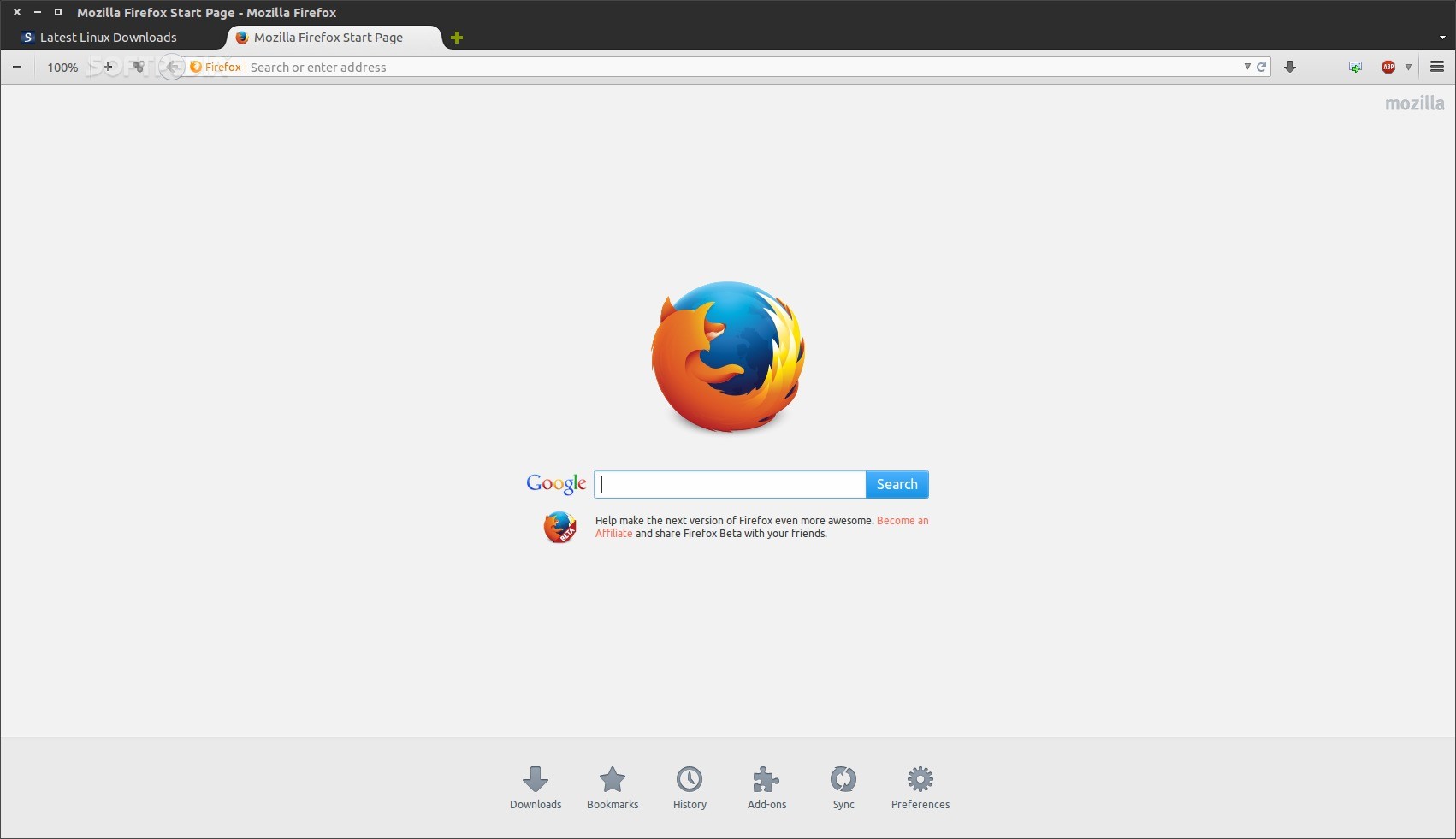

If you edit the script, or use your own copy of the script, with the exec removed, the shell will remain in memory while the browser is still running. In it, the exec $MOZ_LIBDIR/$MOZ_APP_NAME causes the script to replace itself with the actual Firefox binary. It is a launcher shell script for Firefox. Second approach is to customize or interpose /usr/bin/firefox (or /usr/bin/firefox-esr). (I tried to get the necessary hooks for doing this in a transparent, safe manner to GDM, but got fed up with the lack of interest, and switched to LightDM.) The downside is that the profile is in memory even when you don't have a browser open, and if you keep yourself logged in all the time, the tarball version of the profile never gets updated. This is managed via a session manager script, and varies slightly between session managers. There are two approaches to maintaining such Firefox profiles.įirst approach is to construct it at login, and deconstruct/repack it at logout. It still works fine for casual web browsing.) (The no-cache one I used on a 2009 Acer Aspire One A110L minilaptop. The only real limitation of this approach is that you'll want to set the maximum cache size to something small I happily used 0, 32 and 64 megabytes for years. When active, the contents of the tarball are extracted to a temporary directory on a tmpfs mount (ramdisk), with the ~/.mozilla/firefox/fault pointing to that directory.

Has anybody found, useing a work around for Chrome, when I looked on the net I could not find anything about Chrome, it was all FF."īefore switching to a laptop with a really, really fast SSD, I used to keep my active browser profiles on a ram disk (tmpfs).Įssentially, when inactive, your Firefox profile can be stored in a tarball (~/.mozilla/firefox/).

I dont need this garbage of Chrome writing the whole page to my micro SD every 15 seconds. "reduced to using Chrome, below is what is going on inside Firefox, it says Chrome does the same thing. He found both browsers write a lot of data as they continuously make a backup of themselves"
#SESSIONRESTORE FIREFOX SOFTWARE#
This was discovered by researcher Sergei Bobik who used the software SSDLife to monitor how much data was read and written on his system. Both browsers write an incredible amount of data to disk, even when idle.įirefox-with-32gb-written-in-a-single-day "Firefox and Chrome can shorten SSD lifetimeįirefox and Chrome have been found to continuously write so much data that it might affect the durability of SSDs. "Heavy SSD Writes Firefox is eating your SSD" "Firefox (& Chrome) are eating our SSD's?!" Hello, i discover this article of 2016, this problems seems to affect also chromium browsers, it wil be great to save our hard disk and battery to add an option to disable session restore or increase session store intervals, we can do that with firefox but we can't do this with chrome browser, i have made search, i found solution but is complicated, may be it can help, please add option to disable completely session restore, many don't need this feature, we just use browser to watch some videos. I'm willing to implement this feature myself.Disabling session restore Who's implementing?


 0 kommentar(er)
0 kommentar(er)
